The question, on the surface, is innocuous enough. “If you are reading a story (assume that it is the kind of story you are inclined to enjoy),” the author C.L. Polk (Witchmark) asked on Twitter, “and you say, ‘this is boring,’ what probably made you say that?”
A question like this can fill a reader (let alone a writer!) with apprehension. You know, you just know, that whatever you love best is going to appear in the replies as something someone else hates. It’s just how it works: We all want something different out of books. My yuck is your yum, and vice versa; my favorite book is inevitably one plenty of people couldn’t finish. But—and I realize this is an unanswerable question, at least in a general sense—why?
Why do we read what we read? Why do two readers find the same ideas or styles both boring and exciting? The replies to Polk are wonderful in their range and inevitability: For every person who hates dialogue, there’s someone who can’t get enough; for everyone who wants explosions, there’s someone who flips past the action.
I don’t have anything resembling a scientific answer for this, and if there is one, quite honestly I don’t want to know. Reading is deeply subjective, and I don’t want anyone to tell me that some weird math experiment shows that readers exposed to fairytales before the age of seven get invested in happily ever afters, and those who grew up on Sesame Street have a high tolerance for the delightfully absurd. I don’t want hard and fast answers. I just want to know what we come up with when we ask ourselves these questions.
If you’ve just finished a book and you’re ready for a new one, how do you choose? Maybe you have a giant to-be-read stack and the answer is as simple as looking at what’s in it—but even then, what earned those books their place in that stack? What combination of character, plot, setting, premise, reviews, word of mouth, author interview, bookseller staff pick, librarian recommendation, gorgeous cover, and quirky title made you pick that one?
Buy the Book
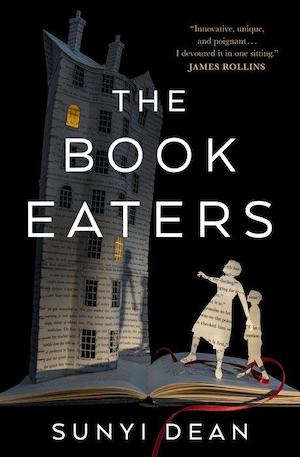

The Book Eaters
This is a hard question to ask myself on account of my TBR is genuinely overflowing. I’ve considered establishing a “one in, one out” rule, where “out” means I sacrifice something I’ve had but not read for years, leaving it to the mercies of the Little Free Library gods. I have books I have to read in a timely manner for review, and things I’m dying to read on account of they talk about all the things I’m interested in. I have books I’ve tried to set aside and failed, and the ones I keep looking longingly at: Is it time yet?
Sometimes I want something different. Sometimes I want something familiar. Earlier this month, I read Emma Straub’s This Time Tomorrow because I wanted both: I trusted Emma (who I know, a little bit, from my former bookseller days) to be a loving and truthful guide through a landscape with which I was just familiar enough to be particular. Her novel is set in ’90s Manhattan, where I went to college, but long blocks from where I lived. It was ground I knew, but not well—but it’s also a novel about fathers and daughters and mortality and the way everything around us changes whether we’re ready for it or not, and that, I know all too well.
This one almost seems easy, if I were trying to boil it down to the simplest elements that made it leap into my hand and sing for me. The setting: ’90s New York. The process: coming-of-age, but delayed, a thing that keeps happening to us over and over again. The style: One of Emma’s gifts is that she makes everything seem effortless. You can’t see the puzzle edges; you’re too engrossed in the whole image. The question: What would our other lives, other versions of ourselves, hold? What would we do differently, if it would actually make a difference? And what would we never change, not for all the world?
But there are so many other ways to look at this book. It’s about being young and carefree. It’s about how we sometimes don’t get to know our parents as people, rather than parents, until too late. It’s a time travel story that doesn’t care at all about the mechanics of time travel. (Blessedly.) It’s about best friendships that endure all kinds of change, and about being okay with the smallness of your world. It’s about how all our worlds are small.
But how does that fit into my reading world along with, say, Olga Ravn’s The Employees, an unnerving and elegant novella in which humans (and their humanoid colleagues) report and complain about their lives on a generation ship? Or Hanif Abdurraqib’s They Can’t Kill Us Until They Kill Us, an essay collection I think about on a monthly basis? Or Brenda Shaughnessy’s transporting poetry, or the whole shelf of books I have by women in bands? How did I get to any of this from The Book of Three and A Wizard of Earthsea and The Maude Reed Tale?
The answer is a long and winding path, of course: assigned reading, chosen reading, recommended reading, books stumbled onto, and books frantically sought out. I find myself wondering, though, about a sort of nature vs. nurture quality in reading. Do I not remember the names and dates of history very well because I never read much of it as a child or teen? Why am I fine with all the murders in A Game of Thrones or the violence in Sorrowland, but can’t read thrillers or murder mysteries? (The answer to this is probably buried somewhere in all the mythology I ate up as a young reader.) Where did I learn to love an ambiguous resolution?
What does it look like if you trace all your literary habits and loves back to a source? Can you?
You could ask these questions about any matter of taste: Why do you like the foods you like or the clothes you wear? But there’s a specific vitality to stories, to the shapes that feel comfortable or challenging, the clever structures that feel fizzy in the brain or the characters who become part of how you see the world. I don’t know how to not say “What has it got in its pocketses?” or “Clean cup, move down!” even though that one’s not from Alice’s Adventures in Wonderland but from a movie adaptation I don’t even remember seeing. How many reading choices lead to real-life choices? Would I be lying if I said I went to college in New York in part because of Diane Duane’s So You Want to Be a Wizard? It wasn’t conscious, but I know that book is in there. If I’d read Tam Lin instead, would it have changed my future?
The only answer I have for any of these questions seems at once too simple and too obvious and entirely true: We read what we read because of everything we’ve read—and watched, and heard, and experienced—before. When you read a book that explodes your preconceived notions of what a genre is and does, it changes what you read. When you read one too many books in quick succession that use the same structure, the same character types, the same cliches, the experiences changes what you read. The things we read add up to part of who we are. But I’m not here to go on a little tired pep talk about how reading makes the world a better place. There are plenty of bad books, and books full of hate, and books that aren’t going to open doors for you. But you can, if you read thoughtfully and curiously, open doors for yourself.
It’s especially necessary to ask why we read what we read if your education, like mine, was unfortunately homogenous. My small-town schools did not offer much diversity on the reading list, and even in college there were countless white authors for every James Baldwin or Jamaica Kincaid (both of whom I encountered in an elective focused on literature and exile; it might’ve been the most valuable class I took, as it showed me what I was missing).
The world will too rarely insist that a white reader interrogate her reading habits. That is all the more reason to do so. Readers shouldn’t take things for granted or go along with the status quo. What is SFF, as a genre, if not a refusal to accept that things can only be the way they are? They can be better. We can be better, as readers. “White supremacy is a comprehensive cultural education whose primary function is to prevent people from reading—engaging with, understanding—the lives of people outside its scope,” Elaine Castillo writes in How to Read Now. How can we unlearn this education? Maybe asking why we read what we read is part of it. Maybe that’s too idealistic. But it’s somewhere to start.
Why am I reading what I’m reading now? I’m reading Castillo because she’s sharp and passionate and in just the two essays that I’ve read so far—including a wise one called “The Limits of White Fantasy”—has a brilliant knack for honing in on a general conversation and making it specific, vivid, even more powerful. I’m reading Ursula K. Le Guin because I’m making my way, slowly but surely, through her entire catalog; because her stories are sly and wise and show me how “quiet” stories can work wonders. I’m going to read Megan Giddings’ The Women Could Fly just as soon as it gets here because a dystopian witch novel about a mother and daughter is something I never knew I wanted.
Why do we read what we read? Because we get something out of it. What else is out there, hiding in all the books we’ve not yet read?
The answers to C.L. Polk’s question about what makes a book seem boring are fascinating to me, in part because they’re such specific answers to my questions about reading. People want to care, they want to be invested (but not too much); they want the stakes to be apparent, the motivations understandable, the worldbuilding balanced with plot; they want the writing to be clear or beautiful or for it to paint a picture or get out of the way. They want it all, like we all do.
Molly Templeton lives and writes in Oregon, and spends as much time as possible in the woods. Sometimes she talks about books on Twitter.











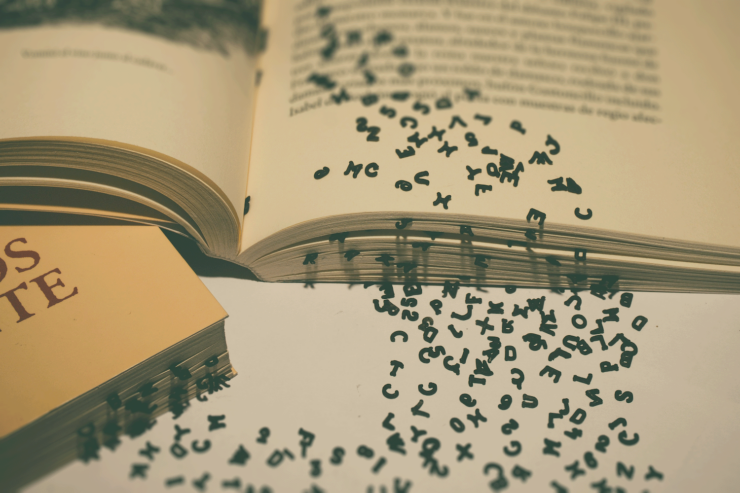
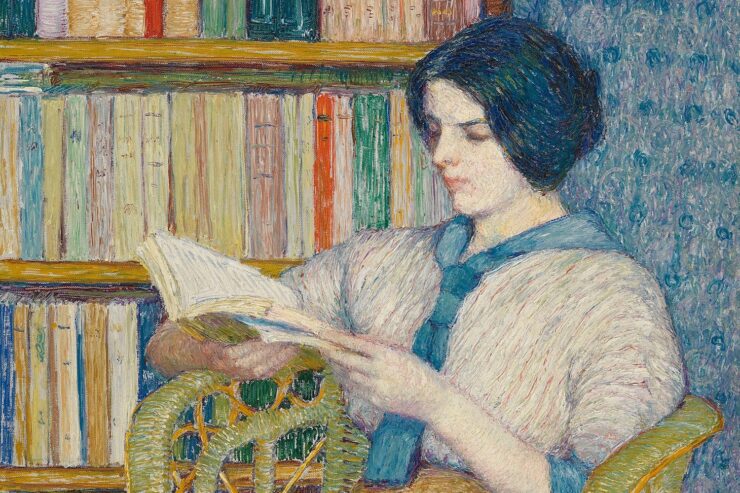
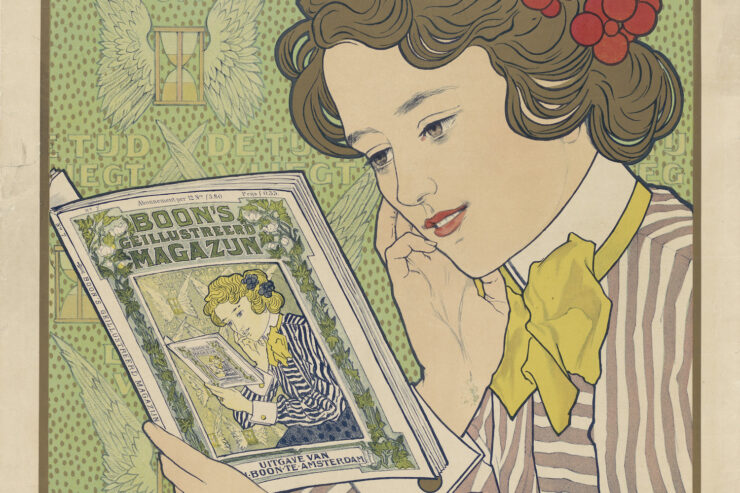
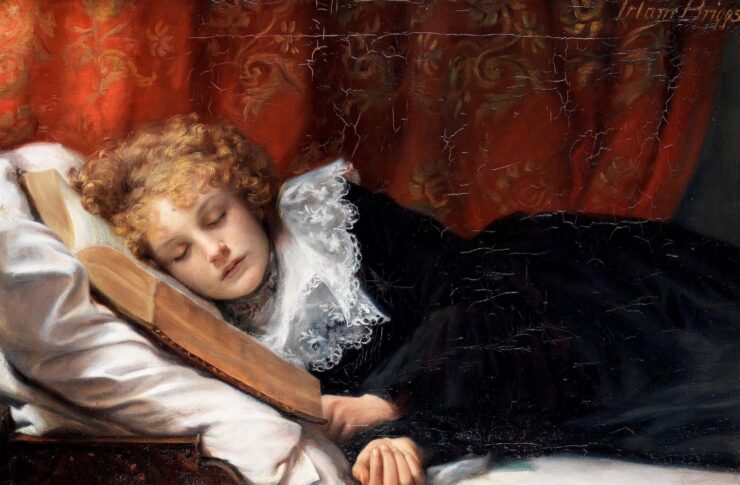
Interesting post! I haven’t really analyzed my interest in certain genres but that would be helpful . . . actually it’s probably the books my folks read to me–the My Book House books, another anthology with stories about different cultures, and some others.
As an English major, obviously I read a lot of stuff for class. The only works I didn’t like were anything Henry James wrote, and Voltaire’s Candide.
In general, I read because the characters are interesting and I want to find out what happens to them. I don’t care if I relate to them or not–that’s not what I’m looking for, tho’ sometimes that happens. Or with biographies, I want to find out about the person (in childhood, the bios I read included those of Robert seur de La Salle, WC Handy, George Washington Carver, Anne Sullivan Macy, Queen Isabella, Benjamin Franklin, Abraham Lincoln, and Sandy Koufax . . . all chosen myself from the library, or a book sale).
I reread because I want to have that particular reading experience again, for various reasons (there are books, fiction and non-fiction, that I turn to when current events are stressful).
There are a couple of books that I read just to find out what happens to the characters and found that I related to the main characters in a serious way (not simply in an incidental way like wearing glasses or putting off an important homework project ’til the night before it’s due) and when need be, I reread those. I would’ve found those books interesting even if I couldn’t relate to any of the characters, though.
It’s an interesting question, or series of questions. I sometimes wonder how we sift through the influences of childhood to choose what things we keep and what we don’t.
My late parents were both fantasy fans, but my sperm donor was a racist homophobe, into Western and war films, while my mother was a far more open-minded person, an inveterate reader of true crime magazines who recognised the darkness in things while trying to pull herself and those around her toward the light through action, and had a passion for learning about computing technology.
My mother died when I was 16, but considering that I’m LGBTQIA+ and my sister is my best ally, that both of us have had the label SJW thrown at us on occasion, and that we were both to some degree in our generation’s vanguard where tech was concerned, I believe I can with certainty state that we took far more from her influence than from his. Thankfully. (Of course, it doesn’t mean he didn’t have any impact – just that we reject his bigotries for ourselves, and prefer to find a way past them.)
Our whole family loved LotR. I was too late to know what the truth was about how my parents became interested in each other (since little my SD ever told me could be relied on to be true, and he was the only parent I had a chance to know as an adult), but I sometimes suspect that intersection of their lives was deeply entwined with their mutual interest in fantasy. They didn’t seem to have much else in common, beyond perhaps an interest in animal rescue and some of their shared music. But LotR was the SD’s favourite book from childhood (my parents having been born in ’56 and ’57), and one of my last memories of us all as a family is that we went to the tiny cinema in the nearest town to see Peter Jackson’s adaptation of The Fellowship of the Ring, as a group.
Fantasy was often the glue that bound us when nothing else could. Funny, that. It still holds true — in more of my interpersonal relationships than I’d recognised. I wonder how deeply it runs for other FSF fans, and how it grew there?
I think I was born with the stories of Robin Hood, King Arthur and Star Wars as worlds that I wanted to stay in (my parents did that to me). The elements of those stories shaped what I read as a child and then as a teen discovered the Drizzt series. That opened up a wonderful journey to the reader I am today. I need a great plot but the characters are the most important thing to me. I now crave writers and stories with different ethnicities and who struggle and survive and thrive in hard circumstances. My TBR pile is filled with books from just about every section of the book store and I don’t know how they fit together except for one thing: helping me to understand and love the people who share this planet with me.
THE MAUDE REED TALE?!?!
ISTG I thought no one had ever read this book besides meeeee! But you did!! *sobs quietly*
I’ve been thinking about this as my TBR list and library holds grow. Ultimately, I decided that I read to escape. This was what first drove me to SFF and, with few exceptions, keeps me in the genre.
I tend to avoid dystopian books, the world is depressing enough. I also dislike coming of age books since I did that decades ago.
What I do look for is a touch of humor (or snark) with memorable characters, preferably adults for the most part, and an involving plot. And if it makes me think, I’m sold.
Hello, I am the person who read Tam Lin instead, and then I went to a small private Minnesota liberal arts college where eventually someone recommended So You Want To Be A Wizard. I wave from your other timeline. It’s nice here too.
@@.-@ – Yes! I read it over and over again! I even still have my copy!
@6 – I love this. Hello from the other timeline. :)